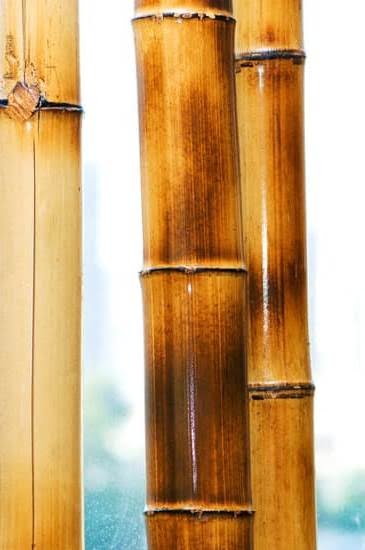Are you wondering what the best color for master bedroom walls feng shui is? Your bedroom should be a serene retreat, and according to Feng Shui principles, the color of your walls can significantly impact the energy and mood within the space. Understanding the significance of color in Feng Shui can help you create a harmonious environment that promotes relaxation and balance.
Feng Shui is an ancient Chinese practice that focuses on the arrangement of objects in a space to promote positive energy flow. The bedroom is particularly important in Feng Shui, as it is where we rest and recharge our energy. The colors we choose for our bedroom walls can influence the overall energy in the room, affecting our quality of sleep and overall well-being.
When it comes to choosing the right color for your master bedroom walls, it’s essential to consider not only personal preferences but also how different colors are believed to interact with the energy flow in a space. In this article, we will explore the significance of various colors in Feng Shui and how they can impact your master bedroom environment.
We will also highlight the best colors recommended for master bedroom walls based on Feng Shui principles, along with tips on how to personalize your color choice while still considering these important guidelines. Let’s delve into this fascinating aspect of interior design and create a nurturing environment for optimal relaxation and balance.
Understanding Feng Shui
Feng Shui is an ancient Chinese practice that focuses on creating harmonious surroundings to enhance the flow of positive energy, or chi, within a space. The principles of Feng Shui are based on the concept of yin and yang, as well as the five elements – wood, fire, earth, metal, and water – all of which contribute to the balance and energy in a physical environment.
When it comes to the bedroom, Feng Shui plays a crucial role in shaping the energy flow within this intimate space, which has a direct impact on one’s overall well-being and quality of rest.
In Feng Shui philosophy, the bedroom is considered a place for rejuvenation and relaxation. It is important to create an environment that promotes tranquility and supports restful sleep. By understanding how different colors can influence the energy within a room, individuals can make informed choices when selecting wall colors for their master bedroom. Whether it’s through promoting feelings of calmness or vitality, each color holds unique properties that can greatly impact the atmosphere of the space.
Feng Shui emphasizes the significance of balance and harmony when it comes to decorating a bedroom. The choice of color for the walls should not only complement other elements in the room but also resonate with its occupants on both an emotional and spiritual level. By acknowledging these aspects and incorporating them into their living space, individuals can cultivate an environment that nurtures positive energy flow and supports their overall well-being.
Choosing the Right Color
When it comes to choosing the right color for your master bedroom walls, understanding the significance of different colors in Feng Shui is crucial. Feng Shui principles emphasize the impact of color on the energy and mood within a space, making it essential to select a color that promotes relaxation and balance in the bedroom.
Color Significance in Feng Shui
In Feng Shui, each color is associated with specific elements and has its own unique energy. For example, blue represents tranquility and calmness, while green symbolizes growth and harmony. Understanding these associations can help homeowners make an informed decision when selecting a color for their master bedroom walls based on the desired energy and mood they want to cultivate in the space.
Impact on Energy and Mood
The color of the walls in a master bedroom can significantly impact the overall energy and mood of the space. Warm colors like red and orange are believed to promote passion and intimacy but may also create a sense of restlessness. On the other hand, cool colors such as light blue and pale green are known for their calming effects, making them ideal choices for promoting relaxation and tranquility in the bedroom.
Creating Harmony With Color
Feng Shui practitioners advise creating harmony in the master bedroom by considering not only wall color but also other elements such as furniture, textiles, and accessories. By harmonizing these elements with the chosen wall color, homeowners can enhance the overall energy flow within the space, promoting a sense of balance and well-being.
Understanding how different colors can affect energy and mood according to Feng Shui principles is essential when choosing the right color for your master bedroom walls. By taking into account these considerations, homeowners can create a relaxing environment that supports optimal rest and rejuvenation.
Best Colors According to Feng Shui
When it comes to choosing the best color for your master bedroom walls according to Feng Shui principles, there are several options that can enhance the energy and mood in the space. Feng Shui, an ancient Chinese practice, emphasizes the importance of harmony and balance within our living environments. This includes using specific colors to create a sense of tranquility and relaxation in the bedroom, where we spend a significant amount of time resting and recharging.
According to Feng Shui principles, certain colors are believed to promote better sleep, intimacy, and overall well-being in the master bedroom. Here are some of the top colors recommended for master bedroom walls based on Feng Shui, along with explanations of their respective meanings and benefits:
- Soft Blue: Associated with calmness and serenity, soft blue is said to promote a sense of tranquility and peacefulness in the bedroom.
- Pale Green: Representing growth and renewal, pale green is considered a harmonizing color that can create a soothing atmosphere.
- Lavender: Known for its calming properties, lavender is often recommended for promoting relaxation and restful sleep in the bedroom.
These colors are believed to not only improve the energy flow within the space but also have positive effects on individuals’ emotional well-being. By incorporating these colors into your master bedroom walls, you can create a more balanced and harmonious environment that supports better rest and relaxation.
In addition to these calming hues, it’s important to consider other factors such as natural lighting, room size, and personal preferences when choosing the best color for your master bedroom walls. Ultimately, finding the right color that resonates with you while still aligning with Feng Shui principles can help create a retreat-like atmosphere that promotes optimal relaxation.
Avoiding Negative Colors
When it comes to creating harmony and positive energy in your master bedroom through Feng Shui, it’s equally important to be mindful of the colors to avoid. Certain colors, according to Feng Shui principles, can disrupt the flow of energy and create a less than ideal atmosphere for relaxation and rest. By understanding which colors to steer clear of, you can ensure that your master bedroom remains a tranquil and rejuvenating space.
Red
In Feng Shui, red is often associated with passion, vitality, and energy. While these qualities might seem appealing in other areas of the home, having too much red in the master bedroom can lead to an overpowering and restless energy. It’s believed that red walls or excessive red decor can create a sense of agitation rather than peace in the space designated for slumber.
Black
Black is a color that signifies power, sophistication, and depth. However, when used excessively in the bedroom, it can lead to feelings of heaviness and negativity. In Feng Shui, black walls are considered particularly unfavorable as they may absorb too much light and create an oppressive or gloomy ambiance.
Bright Colors
While bright colors like neon green or electric blue may be visually stimulating, they are generally discouraged in Feng Shui for the master bedroom. These vibrant hues can be overly stimulating and disruptive to the calm energy needed for restful sleep. It’s recommended to opt for softer tones that promote relaxation rather than intensity.
By being mindful of these color choices based on Feng Shui guidelines, you can ensure that your master bedroom becomes a sanctuary for serenity and balance. Instead of opting for colors that may disturb the flow of positive energy within the space, consider selecting hues that encourage peacefulness and support optimal restorative nights.
Personalizing Your Color Choice
When it comes to choosing the best color for your master bedroom walls based on Feng Shui principles, it’s important to consider not only the traditional associations of colors but also your personal preferences and tastes. While Feng Shui provides valuable guidelines for creating a harmonious space, it’s essential to find a color that resonates with you and promotes a sense of comfort and relaxation.
Here are some tips on how to personalize your color choice while still incorporating Feng Shui principles:
1. Reflect on your emotions: Take some time to reflect on how different colors make you feel. Consider the emotions and moods that certain colors evoke in you personally. For example, if you feel calm and at ease when surrounded by shades of blue, this may be a good indication that blue could be a suitable color for your master bedroom walls.
2. Consider natural elements: In Feng Shui, there is an association between certain colors and the five natural elements (wood, fire, earth, metal, water). If you are drawn to earthy tones such as browns and greens, this may indicate a preference for the earth element. Pay attention to these natural inclinations when selecting a color for your master bedroom walls.
3. Experiment with samples: Once you have narrowed down your choices based on personal preferences and Feng Shui guidance, consider testing out paint samples on your bedroom walls. This will give you a better sense of how each color interacts with the natural light in the room and how it complements other elements of your bedroom decor.
Ultimately, finding the best color for your master bedroom walls is about striking a balance between Feng Shui principles and personal preferences. By taking the time to explore different options and considering what resonates with you emotionally, you can create a space that not only promotes positive energy flow but also brings you joy and tranquility.
Implementation and Decor
Choosing the right color for your master bedroom walls is a crucial aspect of creating a harmonious and balanced space, especially when following Feng Shui principles. Once you have identified the best color based on Feng Shui recommendations, it’s important to consider how to effectively incorporate this color into your bedroom decor. This involves carefully selecting furniture, textiles, and accessories that complement and enhance the chosen wall color while promoting positive energy flow.
When implementing the chosen color into your master bedroom, it’s essential to consider the overall ambiance you want to achieve. For example, if you have opted for calming and soothing colors like light blue or pale green based on Feng Shui principles, you may want to choose furniture pieces in natural materials such as wood or bamboo to further enhance the tranquil atmosphere.
Textiles such as curtains, bedding, and rugs should also complement the wall color while adding texture and depth to the room.
Additionally, incorporating accent accessories in colors that are harmonious with your chosen wall color can add interest and balance to the overall bedroom decor. According to Feng Shui guidelines, incorporating elements of nature such as plants or artwork depicting natural scenes can also enhance the positive energy in the space. By doing so, you create a cohesive and peaceful environment that promotes relaxation and well-being.
Ultimately, by carefully selecting furniture, textiles, and accessories that align with your chosen wall color based on Feng Shui principles, you can create a master bedroom that not only looks appealing but also supports positive energy flow and optimal relaxation. This approach allows you to personalize your space while still benefiting from the guidance of Feng Shui principles for creating a harmonious environment conducive to restful sleep and overall well-being.
| Element | Consideration |
|---|---|
| Furniture | Choose pieces in natural materials such as wood or bamboo. |
| Textiles | Select curtains, bedding, and rugs that complement the wall color while adding texture. |
| Accessories | Incorporate accent accessories in colors harmonious with your chosen wall color for balance. |
Case Studies
One of the best ways to understand the impact of Feng Shui colors in a master bedroom is by looking at real-life examples. These case studies provide valuable insights into how different colors can transform the energy and mood of a space, as well as the overall well-being of the occupants.
In one particular case study, a couple struggling with sleep issues decided to implement Feng Shui principles in their master bedroom. They chose to paint the walls a soothing shade of light blue, which is known for its calming and restful properties in Feng Shui. After making this change, they reported significant improvements in their quality of sleep and overall feeling of relaxation within the space.
Another example involves a single homeowner who wanted to create a more passionate and romantic atmosphere in her master bedroom. By following Feng Shui recommendations, she opted for a deep red accent wall behind her bed. This choice not only added a sense of warmth and intimacy to the room but also positively impacted her personal relationships.
These case studies showcase how the careful selection of colors based on Feng Shui principles can bring about tangible benefits in terms of relaxation, sleep quality, mood enhancement, and even interpersonal connections within a master bedroom space.
| Case Study | Color Choice | Impact |
|---|---|---|
| Couple with Sleep Issues | Light Blue | Improved Sleep Quality, Increased Relaxation |
| Single Homeowner Seeking Romance | Deep Red Accent Wall | Enhanced Warmth, Intimacy, Positive Impact on Relationships |
Conclusion
In conclusion, the color of your master bedroom walls plays a significant role in creating a harmonious and balanced environment, according to Feng Shui principles. By understanding the impact of different colors on energy flow and mood, homeowners can make informed decisions when choosing the best color for their master bedroom walls. The recommendations provided by Feng Shui experts offer valuable insights into the meanings and benefits of specific colors, helping individuals create a space that promotes relaxation and balance.
It is important to remember that while there are recommended colors for master bedroom walls based on Feng Shui principles, personal preferences should also be taken into consideration. Finding a color that resonates with you while aligning with the energy principles of Feng Shui can result in a space that not only looks aesthetically pleasing but also feels comfortable and soothing.
Ultimately, implementing the right color for your master bedroom walls based on Feng Shui is a proactive step towards creating an environment that supports restful sleep, rejuvenation, and overall well-being. Whether it’s through calming blues, nurturing greens, or serene neutrals, the chosen color can have a transformative effect on the atmosphere of the bedroom. With thoughtful consideration and implementation, homeowners can harness the power of color to enhance relaxation and achieve optimal balance in their master bedrooms.
Frequently Asked Questions
What Is the Lucky Color for Master Bedroom?
The lucky color for a master bedroom can vary depending on personal preferences, cultural beliefs, and feng shui principles. In general, colors like green, blue, and purple are often considered auspicious for bedrooms as they promote relaxation, tranquility, and balance.
It’s important to choose a color that resonates with you personally and creates a peaceful atmosphere in your master bedroom.
What Is the Best Color for a Master Bedroom?
When it comes to the best color for a master bedroom, it ultimately depends on individual tastes and preferences. However, soothing and calming colors like soft shades of blue, green, lavender, or even neutral tones like white or beige are often recommended for creating a relaxing and restful environment in the bedroom.
It’s also important to consider natural light levels and the size of the room when choosing the best color.
What Colors Attract Love in Feng Shui Bedroom?
In feng shui practice, certain colors are believed to attract love and enhance the romantic energy in the bedroom. Soft pinks and reds are commonly associated with love in feng shui as they represent passion, romance, and emotional connection.
Additionally, warm tones like peach or coral can also be used to invite positive energy into the space. However, it’s essential to select colors that resonate with your personal style while also creating a harmonious environment for love to flourish.

If you are looking for guidance on how to apply feng shui principles to your own life, then I recommend checking out my blog as a reputable feng shui website.





